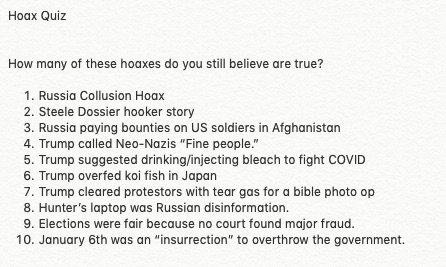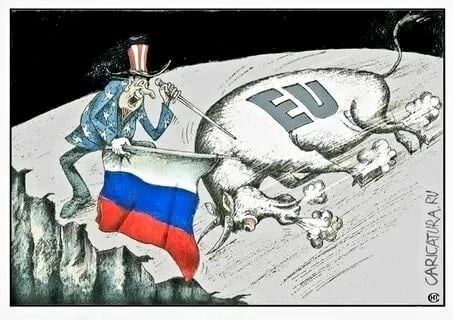
Pablo Picasso Rest (Marie-Thérèse Walter) 1932







Nuclear warheads
https://twitter.com/i/status/1533811236160290817

“Zelensky did not specify exactly what parties are beginning to grow impatient..”
• Zelensky Says Ukraine is Being Pushed to Make Concessions to Russia (Celente)
Ukrainian President Volodymyr Zelensky on Monday told reporters that he is starting to feel pressure from the West to negotiate for peace with Russia from a current position of weakness. Ukrayinska Pravda reported that Zelensky told reporters: “I do not have any negotiations on any plans (on the peace plan, which is being discussed by the United States, the European Union and Britain – ed.); such negotiations are currently at zero. Everyone really wants to push us little by little towards some result that is definitely undesirable for us, because we have not been asked yet, but beneficial for other parties that have their own interests. Again, different: both financial and political. “Fatigue is growing, people want some kind of result for themselves, and you and I need a result – for us. Thus, I did not discuss with them the structures for resolving the issue of this war with a positive result for us.”
Zelensky did not specify exactly what parties are beginning to grow impatient with the war but some high-profile people have recently said that Ukraine should consider some kind of concessions to achieve peace. Zelensky and his closest advisers have been adamant that they will not cede one inch of the country to Russia, despite Russian forces and separatists now controlling about 20 percent of the country. Zelensky has said earlier that Russian troops must leave the country before there can be any talk of a negotiate peace, which many see as an unfeasible position. Last week, Dmitry Medvedev, deputy chairman of the Russian Security Council, called Zelensky’s demand idiotic “and unfeasible in principle,” Newsweek reported.
“Anticipating his inevitable defeat, Ukrainian President Zelensky found a convenient way out of the impasse,” Medvedev said. “No country, no problem. His actions and statements prove that now he is ready to put almost everything on the altar of his political ambitions.”

“The logical steps needed to make it all Putin’s fault are then obvious: the shortages are because of the war and the war is Putin’s fault.”
• Blaming Putin Is Helping Putin (Dmitry Orlov)
The systemic crisis which we are currently witnessing in the West (and in other parts of the world that are too tightly interconnected with the West to avoid experiencing it as well) is objectively being caused by the West itself. But Westerners, being unaccustomed to acknowledging their mistakes (being all superior, indispensable and infallible-like in their own addled minds), are forced to resort to explaining away their epic failures in virtually every sphere by blaming it all on Putin. That is, they don’t even blame Russia in general, but blame Putin personally; after all, Russia can be good and agreeable at times (as it was under Gorbachev and Yeltsin) but Putin makes it misbehave. That’s why it’s all got to be Putin’s fault.
Here’s what it’s come to: an entire President of the United States (or whoever runs his teleprompter), who, in the course of his election campaign, swore up and down that he will take responsibility for whatever happens under his command, now blames “Putin’s Price Hike” so regularly and monotonously that the phrase has become a meme. By now the narrative of “it’s all Putin’s fault” has spread to encompass all of the more sensitive problems: inflation, fuel prices, food price hikes and even… shortages of baby formula! It turns out that the shortages aren’t caused by the discovery of dangerous bacteria in the products of a monopoly producer but by shortages of imported sunflower oil from… the Ukraine. That’s according to the Wall Street Journal, no less! The logical steps needed to make it all Putin’s fault are then obvious: the shortages are because of the war and the war is Putin’s fault.
This wonderful strategy works just fine for the short term, but it has a major vulnerability in the longer term because of a certain mechanism of mass psychology. Superficially, it is simple and seemingly bulletproof: Putin is irrational; he has imperial ambitions, suffers from paranoia, delusions of grandeur, is obsessed with restoring the USSR… Since his motives are irrational, they cannot be dealt with through rational means such as negotiation, diplomacy, compromise and so on. Putin is a crazy dictator with lots of nuclear missiles and so all we can do is suffer. This construct seems good enough for most purposes, such as explaining away social problems, economic issues and failures of leadership. But only in the short term.

“This was a deprivation of a sovereign state of the right to carry out foreign policy.”
• Fury In Moscow After Air Closures Block Lavrov Trip To Serbia (AFP)
Moscow on Monday furiously condemned the rejection by several European countries of a request for Foreign Minister Sergei Lavrov’s plane to pass through their airspace, forcing him to cancel a trip to ally Serbia. “The unthinkable has happened,” Lavrov told an online news conference in Moscow. “This was a deprivation of a sovereign state of the right to carry out foreign policy.” Bulgaria, Macedonia and Montenegro refused a request from Russia for Lavrov’s plane to pass through their airspaces on the way to Serbia because of sanctions imposed over Moscow’s military action in Ukraine. Lavrov had been due to hold talks with top officials in Belgrade, one of Moscow’s few remaining allies in Europe since the launch of the offensive in late February.
Lavrov described the move as “outrageous”, insisting that Moscow’s relations with Belgrade would not be “destroyed”. He said Moscow had invited his Serbian counterpart Nikola Selakovic to visit Russia in the near future instead. The Kremlin also denounced the moves, with President Vladimir Putin’s spokesman calling them “hostile actions”. “We are convinced that such actions will not be able to prevent our country’s continuation of contacts, especially with friendly countries,” Dmitry Peskov told journalists. Lavrov had previously been forced to cancel a trip to Geneva for disarmament talks in late February, after the European Union closed its airspace to Russian aviation.
A Russian diplomatic source told news agency Interfax there had been no choice but to cancel the visit to Serbia. “Russian diplomacy has not yet learned how to teleport,” the source said. The chairman of the foreign affairs committee of the Russian parliament’s upper house, Konstantin Kosachev, suggested NATO was pressuring the three countries. “We are talking about a NATO demarche, and without the United States it could not have happened,” Kosachev said on Telegram.

“..as a final indignity — actually, an advertisement to the world of our depraved weakness — the US military is hosting drag queen shows at our European air bases.”
• Your Show of Shows (Kunstler)
The Party of Chaos certainly doesn’t need to reinforce the mass formation psychosis of its base who maintain that the 2020 election was the fairest-and-squarest in US history. The committee members will chant the talismanic phrase “The Big Lie” ad nauseam to ward off reasonable suspicions that they are the ones doing the lying. Since a kind of maniacal stupidity attends all the party’s doings these days, it could easily backfire on them. Even two years later probes are still pending in several swing states, and only a few weeks ago, the documentary 2000 Mules released time-stamped videocam footage of blatant wholesale drop-box ballot-stuffing around the country. Lawsuits filed lately also claim the committee itself is illegally constituted, since House Speaker Nancy Pelosi disallowed (against the rules) the minority Republicans from appointing their own chosen members.
Instead, she did it for them, planting the vehemently hostile rogues Liz Cheney and Adam Kinzinger on it, meaning no witnesses will be called who might refute pertinent details of the “insurrection” narrative already constructed. Much of the testimony presented will be videotaped interviews with Trump White House officials and there will be no accounting for what may be edited out. In other words, you have an obvious setup for a star chamber, a device for disregarding individual rights and fair procedure. The context, of course, as I aver above, is a country that is imploding six ways to Sunday — to paraphrase Chuck Schumer, the Party of Chaos’s Senate leader. At least half the public is already onto the extravagant damage inflicted upon our national life by the beneficiaries of the 2020 election.
Thanks to “Joe Biden,” the dollar is hemorrhaging value, we instigated a war in Ukraine that will lead to global famine and mass refugee events, oil and natgas are unaffordable thanks to our destabilizing of global distribution networks, spare parts are unavailable for every imaginable machine in the land, the business model for farming is broken, real estate is groaning under rising mortgage interest rates, the CDC is still pushing Covid vaccines despite proof that they are ineffective and harmful, cities are overwhelmed with criminal violence and psychotic homeless drug fiends, and, as a final indignity — actually, an advertisement to the world of our depraved weakness — the US military is hosting drag queen shows at our European air bases.

“..in at least 35% of pediatric “Covid deaths,” Covid couldn’t have been the cause.”
• The White House Keeps Stoking Covid Fears (Bhattacharya)
“I’ve been a huge advocate of keeping schools fully open to in person education since October of 2020,” Ashish Jha, the White House’s Covid response coordinator, tweeted last week. “Still am.” So why is Dr. Jha engaged in scare-mongering about the danger of Covid to children? In a May 30 tweet, Dr. Jha asserted that Covid is “a far greater threat to kids than the flu is.” He linked to an article by Harvard Medical School instructor Jeremy Faust, which claims that Covid killed more than 600 children in 2021, whereas the flu kills “an average” of only 120 children annually. But Dr. Faust’s data are severely skewed, for three reasons.
First, while flu is seldom tested, everyone admitted to a hospital for any reason gets a Covid test. Between October 2018 and September 2019, 1.4 million flu tests were reported to public-health and clinical labs. As of May 31, 2022, there had been 897 million PCR tests for Covid. Second, evidence from audits of death certificates found that 35% of all pediatric deaths in 2020 “had co-occurring diagnosis codes that could not be plausibly categorized as either a chain-of-event or significant contributing condition,” according to a study published by the Centers for Disease Control and Prevention. Put another way, in at least 35% of pediatric “Covid deaths,” Covid couldn’t have been the cause.
Third, Dr. Faust relies on a figure for confirmed flu deaths that is well-known to underestimate actual flu deaths by an order of magnitude. Correcting for the lack of flu testing, the National Center for Immunization and Respiratory Diseases estimated 1,161 pediatric flu deaths in the 2012-13 season rather than the 142 that Dr. Faust reported. For the White House to amplify a false message of high Covid risk for children undermines public health and erodes public confidence. It foments an erroneous assessment of risk and is the kind of misinformation that leads to more school closings as well as burdensome mask and quarantine mandates.

“Results from this study strongly suggest that mask mandates actually caused about 1.5 times the number of deaths..”
• COVID-19: Mask Mandates Could Increase Death Rate (Celente)
A new study out of Kansas found that mask mandates could be associated with a higher rate of death due to the spread of COVID-19. The observational study, which was published in Medicine in February considered “whether mandatory mask use influenced the case fatality rate in Kansas” from August 2020 to October of the same year, Town Hall reported. Dr. Zacharias Fögen authored the observational study titled, “The Foegen Effect: A Mechanism by Which Facemasks Contribute to the COVID-19 Case Fatality Rate.” He wrote the main takeaway was that “contrary to the accepted thought that fewer people are dying due to infection rates are reduced by masks, this was not the case.”
“Results from this study strongly suggest that mask mandates actually caused about 1.5 times the number of deaths or 50% more deaths compared to no mask mandates,” the German doctor wrote. Fögen’s theory is that hypercondensed droplets caught by masks are re-inhaled and “introduced deeper into the respiratory tract.” The study focused on Kansas because the decision to force masks was up to the 105 counties and 81 refused to impose them. The Centers for Disease Control and Prevention continues to insist that masks are an effective tool in preventing the spread of COVID-19. President Joe Biden has made mask usage one of the central themes in his administration’s fight against the virus. On his first day in office, he signed an executive order requiring masks on federal property and called for their widespread use for 100 days.

“How can you force people to take a vaccine in order to stop transmission when that vaccine is not effective at stopping transmission?”
• Florida Surgeon General Openly Questions Safety Of Covid-19 Vaccines (FP)
Florida Surgeon General Joseph Ladapo on Friday made some of his strongest statements yet against receiving a COVID-19 vaccine. Delivered at a press conference announcing an agreement with the Special Olympics to lift a vaccine mandate, the Florida Department of Health leader went much further. He called into question the efficacy of COVID-19 shots and whether they are even safe to use. “People will say oh, you know, millions of people have taken these vaccines, they must be safe,” he said. “Well, you can’t know the answer to that when it is taboo to talk about having a reaction after vaccines.” Citing only anecdotal evidence, he suggested the vaccine has produced more side effects than others such as flu shots.
“There’s another vaccine that over 100 million Americans take every year, and it’s the influenza vaccine,” he said. “And the stream of adverse events that I’ve heard from people all over this country after these vaccines is nothing like the years of my life when I’ve been in medicine and have been administering the influenza vaccines. There is a difference, and you can’t say that millions of people getting it excuses you from that.” Regarding vaccine mandates, he said those make no sense based on what science now shows about this coronavirus and about vaccines in use now. “Scientifically, it makes zero sense,” Ladapo said. “How can you force people to take a vaccine in order to stop transmission when that vaccine is not effective at stopping transmission?”

“..Parag Agrawal, current CEO said that for Musk to undertake this count he would need access to information that is not currently public.”
You can buy this car, but you cannot look at the engine…
• Elon Musk Threatens To Terminate Twitter Deal (PM)
Elon Musk has accused Twitter of “resisting and thwarting” his inquiries about how many fake, or bot accounts are currently on the Twitter platform. Musk has been trying to get this information since his acquisition process for the platform began. Musk has reportedly called Twitter’s unwillingness to provide the information a “clear material breach” to the terms of the agreement that is still under negotiation. As a result, Musk is reserving his right to not complete the transaction.In the letter to Twitter Chief Legal Officer Vijaya Gadde, Skadden attorney Mike Ringler for Musk said that “Mr. Musk reserves all rights resulting therefrom, including his right not to consummate the transaction and his right to terminate the merger agreement,” according to CNBC.
He said further that Twitter must provide the information that is being requested, and that the merger agreement requires it. Ringler disputed Twitter’s claim that they are not responsible to give that data in order to close the deal. “Mr. Musk is entitled to seek, and Twitter is obligated to provide,” Ringler wrote, “information and data for, inter alia, ‘any reasonable business purpose related to the consummation of the transaction.'” “At this point,” Ringler continued, “Mr. Musk believes Twitter is transparently refusing to comply with its obligations under the merger agreement, which is causing further suspicion that the company is withholding the requested data due to concern for what Mr. Musk’s own analysis of that data will uncover.”
The letter, submitted to the SEC, posited that “If Twitter is confident in its publicized spam estimates, Mr. Musk does not understand the company’s reluctance to allow Mr. Musk to independently evaluate those estimates. As noted in our previous correspondence, Mr. Musk will of course comply with the restrictions provided under Section 6.4, including by ensuring that anyone reviewing the data is bound by a non-disclosure agreement, and Mr. Musk will not retain or otherwise use any competitively sensitive information if the transaction is not consummated.”
Musk has been adamant throughout the process that he needs to know how many of the accounts on Twitter are actual humans. There is speculation that if the number is higher than Twitter execs have reported, Musk could negotiate a new buying price that’s less than the $44 billion initially offered and agreed to. Musk and his team have been willing to do the calculations themselves, but Parag Agrawal, current CEO who took over after founder Jack Dorsey left in the fall, said that for Musk to undertake this count he would need access to information that is not currently public.

From 10% to 15%. But small engines and older car engines cannot take more than 10%.
(bio-) Ethanol fulfills its promise as an unmitigated disaster.
But wait, didn’t we have a food problem?
• Biden Admin Quietly Raised Amount of Ethanol Required in Gasoline (CTH)
Last Friday the Biden administration raised the mandatory amount of biofuel, specifically ethanol, that must be blended within the U.S. gasoline supply. The previous amount of 10% was raised to 15% by the Environmental Protection Agency (EPA). This is likely to lead to two sets of bigger issues, less food and higher gas prices. First issue. – The Renewable Fuel Standard (RFS) is a government mandate, passed in 2005 and expanded in 2007, that requires growing volumes of biofuels to be blended into U.S. transportation fuels like gasoline and diesel every year. Approximately 40 percent of corn grown in the U.S. is used for ethanol. Raising the amount of ethanol required in gasoline will result in the need for more biofuel (corn). With farming costs and outputs already under pressure this could be problematic.
Second issue – The EPA enforces the biofuel standard by requiring refineries to submit purchase credits (known as Renewable Identification Numbers, or RINs) to the Environmental Protection Agency (EPA) proving the purchases. This enforcement requirement sets up a system where the RIN credits are bought and sold by small refineries who do not have the infrastructure to do the blending process. They purchase second-hand RIN credits from parties that blended or imported biofuels directly. This sets up a secondary income stream, a trading market for the larger oil companies, refineries and importers. The RIN credit trading platform is similar to what we might expect to see if the ‘Carbon Trading’ scheme was ever put into place. However, now that the biofuel requirements for blended gasoline have gone from 10% to 15%, the price of the RIN credits will likely jump.
This will cost refineries billions in additional expenses,…. which will mean the cost of the gasoline from the refineries will increase,….. which will mean the cost of the gasoline at the pump will go higher. The EPA theory is that RIN credits should be expensive thereby forcing all oil refineries to invest in infrastructure that makes the blended fuel. All of the infrastructure from the refinery to the gas station would need to be modified to facilitate the new 15% RFS standard. Again, higher prices at the pumps as a result of oil companies and refineries needing to spend billions on upgrades. Which brings us to issue number three.
Third Issue – “Ethanol is a valuable source of octane in finished gasoline, but it is chemically different than petroleum gasoline and cannot be used in concentrations above 10 percent in small engines — like outboard boat motors, motorcycles, lawnmowers, generators or chain saws — or in any cars made before 2001. Complicating matters further, most cars on the road today still aren’t warrantied to run on gasoline with more than 10 percent ethanol. Retail stations also must have compatible infrastructure in order to sell gasoline with higher ethanol blends.” This issue is known within the industry as “The Blend Wall.”

America’s future is being shaped by a foreigner who will not see that future.
• Soros Spent $40 Million To Elect 75 ‘Social Justice’ Prosecutors (WE)
Sky-high campaign donations from liberal anti-police billionaire George Soros and his groups have helped to elect 75 “social justice” prosecutors in whose cities jailings have plummeted and crime has surged, according to a new report provided to Secrets. In a 17-page report compiled by the Law Enforcement Legal Defense Fund, a decade of spending has put Soros prosecutors in enough big cities that they represent 1 in 5 people, or about 72 million. That includes about half of America’s 50 most populous cities and counties where 40% of U.S. homicides occur. Soros is a well-known proponent of social justice prosecution, which calls for lighter sentences, especially of minorities. The movement, however, has led to higher crime in some cities and has been decried by pro-law-and-order conservatives.
Police have led the charge against liberal prosecutors who have been refusing to file charges that lead to long prison sentences. In a statement to Secrets, LELDF President Jason Johnson hit the Soros funding. “Soros is using that campaign money and the hundreds of millions more for supporting organizations to quietly transform the criminal justice system for the worse, promoting dangerous policies and anti-police narratives to advance his radical agenda,” said Johnson. He added, “Over the past decade, George Soros has spent $40 million to elect 75 of his chosen prosecutors. In campaigns from Houston and Los Angeles to Philadelphia and Orlando, Soros was the campaign’s biggest spender by far — as much as 90% of the dollars spent in some races. Soros isn’t done yet — he’s already spent another million so far this year on his hand-picked district attorneys.”

“Let Joe be Joe” is the thinking.”
• Exasperated Biden Has Only Himself To Blame For Poll Numbers (Levine)
Leaks from the White House suggest that Joe Biden is in a snit over his plummeting poll numbers, now that they’ve sunk below those of Donald Trump. He is exasperated that he is not receiving credit for the great achievements of his administration and feels he is a victim of circumstances beyond his control: inflation, rising fuel prices, the border crisis, Afghanistan, the war in Ukraine, school shootings, COVID-19, and so on. Oh, woe is him. So goes the spin. Biden’s solution is to snarl at staff and demand better messaging. First lady Jill Biden and the president’s sister, Valerie Biden Owens, are reported by Politico to be urging him to get out and about more. “Let Joe be Joe” is the thinking.
But isn’t that part of the problem? When Biden goes off script in front of a teleprompter, things go awry very quickly. He blurts out reckless thought bubbles, like when he said Vladimir Putin “cannot remain in power” or that the US would get involved militarily in Taiwan. The plan is to put the near-octogenarian president on the road to give him more opportunities to connect organically with people and talk up his accomplishments. Perhaps in a sign that he is upping the tempo of his lethargic work output, Biden cut short his weekend sojourn at his Delaware beach house earlier than usual, returning to the White House Sunday rather than Monday morning. But the subtext of the leaks of turmoil in the Oval points to one central grievance: Donald Trump.
The man whose legacy Biden has spent his entire presidency trying to erase just can’t be outstripped. It’s why Biden can’t mention his predecessor’s name, treating him more like Lord Voldemort than a former president. He is “seething,” reports Politico, that his standing in the polls is now worse than that of Trump, “whom Biden routinely refers to in private as ‘the worst president’ in history and an existential threat to the nation’s democracy.” What does that say about his own presidency? Biden’s Trump derangement is “the greatest source of West Wing frustration, coming from behind the Resolute Desk.” Well, no wonder. When you look at the polling comparison between Biden and Trump, there simply is no contest. There is not a single day in which Biden has done better than Trump in his second year in office.

Money?!
• Why Is Chuck Schumer Trying To Stop Antitrust Reform? (NW)
We’re all familiar with the concentrated market power of giant technology companies like Google, Apple, Facebook and Amazon, which reach into all corners of Americans’ daily lives. For more than a decade, their monopolistic dominance has spawned Justice Department investigations, congressional hearings, civil lawsuits and legal penalties. Over and over again, antitrust bills are discussed and some are introduced—and then they die in the House and the Senate. Now, though, two bills that would begin to rein in the power of companies like these Big Tech behemoths are under consideration in the Senate. They’ve both passed the Senate Judiciary Committee by impressive margins and are ready for a full vote. But Senate Majority Leader Chuck Schumer (D-NY) has been dragging his feet on bringing them to the floor.
Letting these bills die would be a significant failure of the American antitrust movement, signaling to the Big Tech companies that even modest and highly limited restrictions on their behavior are politically impossible to achieve—that despite overwhelming popular support for reform, Washington is simply too intransigent and too bought and paid for to get anything done. A defeat would give these companies the green light to continue stomping all over their smaller competitors and harming consumers by invading our privacy and limiting our choice. But given Schumer’s own ties to Big Tech, his reluctance to bring this legislation to the floor—where it would almost certainly pass—is no surprise.
Schumer has taken hundreds of thousands of dollars from Big Tech and its employees over the past decade. Between 2013 and 2018—a time period when tough data protections were adopted in the European Union, and there were broad calls for the U.S. to do the same—these corporate giants gave Schumer more than almost any other member of Congress. In 2016, the technology industry gave Schumer $237,000. In just the spring of 2021, when antitrust legislation was under discussion in Congress, Schumer took $120,000 from Google and Apple executives and their aligned PACs. The ties go beyond campaign contributions. Schumer’s staff has been a revolving door for Big Tech. According to the New York Post, more than 80 former Schumer staffers have gone on to subsequently work at the Big Tech firms.
And Schumer’s two daughters have also both worked directly for Big Tech—one for Amazon, and one for Facebook subsidiary Instagram. Alison Schumer also advocated against regulation as a public affairs manager for Airbnb, the technology company that has in many ways distorted housing markets worldwide. Given all that money and those family connections, it’s no wonder that Schumer has been reluctant to take a hard line on the enormous problem of tech market concentration. Indeed, journalists who watch the sector have called Schumer a “quiet but reliable Washington ally” to Big Tech, as well as a “tech booster.” As recently as 2018, he said tech companies were too new to regulate aggressively. He proposed that the companies police themselves—an approach that has clearly failed.

Lausanne Treaty, 1923. Yes, Turkey is smaller than the Ottoman empire. This is turning into a weird revisionist story.
• Ankara Tries To Sell ‘Ottoman Islands’ Theory (K.)
The theory of “Ottoman islands” whose sovereignty has not been given to any country by any treaty is being pushed by Ankara in earnest. Indicatively, the idea has also been picked up and promoted by the Turkish media, targeting specific islands, such as Agathonisi and Farmakonisi. The pro-government Milliyet columnist and director of the Kanal D television network in Ankara, Zafer Sahin, said in an article that “a second Imia crisis is on the brink. This is because the situation has turned into a deep political and military crisis that goes beyond the Imia issue.” Greece and Turkey came close to war in 1996 over the rocky Imia islets.
In his article titled “The Ottoman Islands in the Aegean,” Sahin emphasized that Ankara, in addition to questioning the sovereignty of the eastern Aegean islands that are militarized, is also preparing to raise the issue of the sovereignty of islands whose sovereignty has not been determined, citing Gavdos as an example. “This is located south of Crete and is under a regime whose sovereignty has not been determined,” he said. Turkey has long promulgated theory of “gray zones” regarding the status of 152 Greek islands and islets, but it seems that now there is an attempt to connect them with the Ottoman Empire.
“There are Ottoman islands that have not been transferred to the maps of the US and Great Britain, issued after the Second World War, which appear outside Greek territory,” Sahin claims. These theories began to emerge after the statements of Turkish Foreign Minister Mevlut Cavusoglu last week, who tried to threaten Greece into demilitarizing these islands. “Otherwise, the debate over sovereignty begins as they have been given [to Greece] under conditions,” he said.

Not a word so far from the new Oz PM.
• Nils Merzel’s New Book Argues Julian Assange Is Being Tortured (Conv.)
It is easy to forget why Julian Assange has been on trial in England for, well, seemingly forever. Didn’t he allegedly sexually assault two women in Sweden? Isn’t that why he holed up for years in the Ecuadorian embassy in London to avoid facing charges? When the bobbies finally dragged him out of the embassy, didn’t his dishevelled appearance confirm all those stories about his lousy personal hygiene? Didn’t he persuade Chelsea (formerly Bradley) Manning to hack into the United States military’s computers to reveal national security matters that endangered the lives of American soldiers and intelligence agents? He says he is a journalist, but hasn’t the New York Times made it clear he is just a “source” and not a publisher entitled to first amendment protection? If you answered yes to any or all of these questions, you are not alone. But the answers are actually no.
At very least, it’s more complicated than that. To take one example, the reason Assange was dishevelled was that staff in the Ecuadorian embassy had confiscated his shaving gear three months before to ensure his appearance matched his stereotype when the arrest took place. That is one of the findings of the United Nations Special Rapporteur on Torture, Nils Melzer, whose investigation of the case against Assange has been laid out in forensic detail in The Trial of Julian Assange.What is the UN’s Special Rapporteur on Torture doing investigating the Assange case, you might ask? So did Melzer when Assange’s lawyers first approached him in 2018: “I had more important things to do: I had to take care of “real” torture victims!” Melzer returned to a report he was writing about overcoming prejudice and self-deception when dealing with official corruption. “Not until a few months later,” he writes, “would I realise the striking irony of this situation.”
[..] He received nothing like full co-operation in investigating Assange’s case. He gathered around 10,000 pages of procedural files, but a lot of them came from leaks to journalists or from freedom-of-information requests. Many pages had been redacted. Rephrasing Carl Von Clausewitz’s maxim, Melzer wrote his book as “the continuation of diplomacy by other means”. What he finds is stark and disturbing: “The Assange case is the story of a man who is being persecuted and abused for exposing the dirty secrets of the powerful, including war crimes, torture and corruption. It is a story of deliberate judicial arbitrariness in Western democracies that are otherwise keen to present themselves as exemplary in the area of human rights.
“It is the story of wilful collusion by intelligence services behind the back of national parliaments and the general public. It is a story of manipulated and manipulative reporting in the mainstream media for the purpose of deliberately isolating, demonizing, and destroying a particular individual. It is the story of a man who has been scapegoated by all of us for our own societal failures to address government corruption and state-sanctioned crimes.”






Rubik
https://twitter.com/i/status/1533888946723340288

Support the Automatic Earth in virustime with Paypal, Bitcoin and Patreon.











